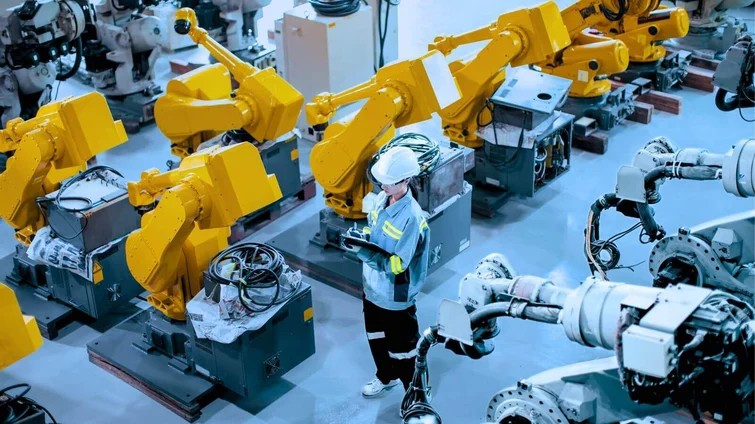The manufacturing industry is undergoing a profound transformation, driven by the rise of smart manufacturing. This paradigm shift integrates cutting-edge technologies such as the Internet of Things (IoT), artificial intelligence (AI), robotics, and data analytics to enhance efficiency, reduce waste, and foster innovation. While the progress is significant, challenges remain that require collaborative solutions to unlock the full potential of smart manufacturing.
In this article, we’ll explore the latest developments in smart manufacturing, the challenges hindering widespread adoption, and an upcoming opportunity to address these issues: the Global Smart Manufacturing Summit.
Smart Manufacturing is undergoing a significant transformation
- AI and Machine Learning: Predictive maintenance, optimized schedules, efficient supply chains, and enhanced quality control are now powered by AI and machine learning algorithms, revolutionizing how manufacturing processes operate.
- IoT Connectivity: The seamless communication facilitated by the IoT allows for real-time data collection and analysis, enabling manufacturers to instantly adjust operations, enhance decision-making, and optimize resource management.
- Digital Twins: These virtual replicas of physical assets provide a powerful tool for manufacturers to simulate operations, identify inefficiencies, and predict outcomes before implementation, minimizing risks and driving informed strategic decisions.
- Robotic Process Automation: The increasing adoption of robots, including collaborative robots (“cobots”), enhances precision, frees up human workers for more complex tasks, and improves overall safety and efficiency on the factory floor.
- Sustainability Focus: Smart manufacturing is prioritizing sustainability by reducing energy consumption and waste. Circular manufacturing models, leveraging data analytics and IoT, are gaining traction, minimizing environmental impact and promoting resource efficiency.
Smart manufacturing, while offering significant potential, faces several critical challenges:
- High Implementation Costs: The substantial initial investment required for implementing smart manufacturing technologies, including infrastructure, equipment, and training, poses a significant barrier, particularly for SMEs.
- Cybersecurity Risks: Increased connectivity exposes manufacturing systems to heightened cybersecurity threats. Protecting sensitive data, ensuring operational security, and mitigating the impact of potential breaches are crucial concerns.
- Skills Gap: The evolving technological landscape demands a workforce with advanced skills. Bridging the skills gap through upskilling and reskilling initiatives is essential to support the transition to smart manufacturing.
- Data Management Challenges: The massive volume of data generated by smart manufacturing systems presents challenges in effective data management and analysis. Extracting actionable insights from this data requires robust tools and expertise.
- Integration Complexity: Integrating new smart manufacturing technologies into existing systems can be complex and time-consuming. Compatibility issues, legacy systems, and the need for customized solutions often hinder smooth adoption.
The road to fully realizing smart manufacturing’s potential is paved with challenges, but collaboration and knowledge-sharing can accelerate progress. Industry leaders, researchers, and policymakers must work together to overcome these hurdles.
Upcoming events like the Global Smart Manufacturing Conference offer an invaluable platform for stakeholders to connect, exchange ideas, and explore solutions.
The manufacturing conference is a premier event bringing together industry leaders, innovators, and experts to discuss the future of manufacturing. The summit will cover key topics such as emerging technologies, cybersecurity strategies, workforce development, and sustainable practices.
Attendees will benefit from keynote sessions, case studies, interactive workshops, and networking opportunities, making this event a vital platform for addressing industry challenges and driving progress.
Join us at the summit to explore, learn, and lead the way in tackling the challenges of smart manufacturing. Together, we can build a smarter, more sustainable future.





